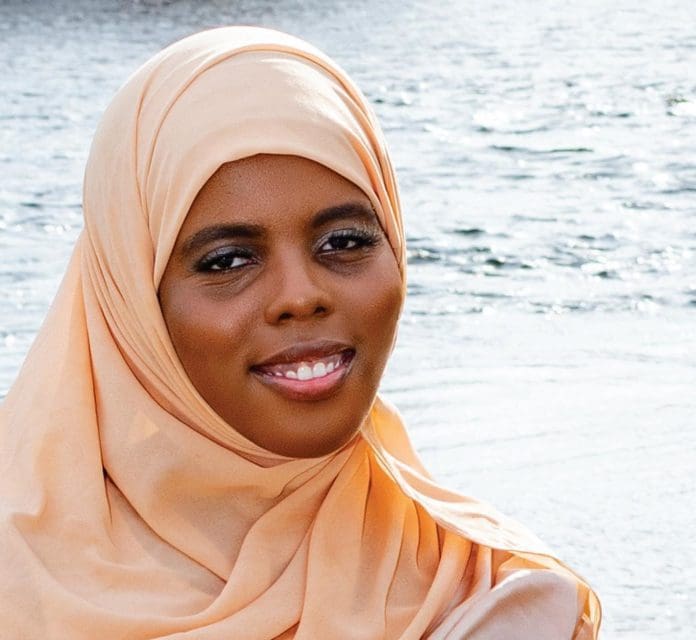Breaking down barriers when it comes to seeking help
“You must be the change you wish to see in the world.”
Those famous words—spoken by Ghandi—aptly describe the attitude of Amran Osman, a 24-year-old immigrant who grew up in Lewiston. Since she lost one of her brothers to an overdose, she has stepped up to be the change in her community’s response to substance use.
“In the Somali community, people weren’t talking about substance use disorder,” Amran says. “People who were going through it were kind of shunned. There’s a fear of talking to parents that if you say you tried something you might be kicked out of the house or beaten on.”
Talking with other young people in the Somali communities in Lewiston and Portland, Amran heard that they, like her, want to increase awareness about substance use and how to get help. She started gathering these youths and, in September, launched a nonprofit called Generational Noor to de-stigmatize the conversation and make existing resources more accessible, multilingual and culturally sensitive. “‘Noor’ means ‘light’ in Arabic and is the last name of all my siblings, who I helped raise and who I love,” Amran explains.
She started with a roundtable discussion at Gateway Community Services, where she works as a community resource coordinator. Forty people showed up.
“Then we had a roundtable in Lewiston and a lot of parents came out, which made me realize that a lot of them were willing to see a shift in the narrative,” Amran says. “They realized that a lot of people were being lost and they want to tackle the issue. We need to talk about mental health and the reasons for turning to substance use. What’s their backstory? What trauma have they been through? Parents don’t know how to talk about it if they came from a culture where mental health wasn’t talked about.”
Many asylee and immigrant youths have lived through war, only to be displaced in the middle of adolescence, growing up in a culture their parents can’t quite understand. Because drug use is not permissible under Islam, Muslim
parents struggle to imagine their children using a substance. “But these youths are juggling two cultures and trying to fit in,” Amran says. And, here in Maine, surveys indicate that 1 in 10 high school students have taken a prescription drug not prescribed to them.
Amran suspects that there’s more access to drugs here than “back home” in Somalia. But she can’t say because she has never been there. She was born in Kenya during her family’s flight from Somalia, and she has been in Maine since she was 3.
She studied political science and international relations at the University of Southern Maine, where she served on the Student Senate as Director of Racial Equity and Inclusion. She graduated in 2021, and she’s already a leader among first-generation Mainers who, like her, want to change the cultural norms of their community to be more transparent about mental health, drug use, addiction and treatment. Generational Noor started with four people, and now there are 27 youths on the group text for volunteers.
“This generation is the one that is going to start breaking down barriers when it comes to seeking help,” Amran says.
Generational Noor is an all-volunteer effort, supported by a dozen board members, including university students, youth coordinators, community consultants and Portland City Councilor Pious Ali.
Future goals include working with community organizations to increase cultural competency, including translating resources into more languages, expanding telehealth and texting-based supports, and supporting single-gender recovery treatment options.
“We want to work with organizations to help people get the help they need and deserve,” Amran said. “The conversations are a starter, but our long-term goal is to be sure that people can access help and that the help is more culturally competent. The resources are there. It’s about reaching and working with different communities.”
For more information, visit generationalnoor.com.



